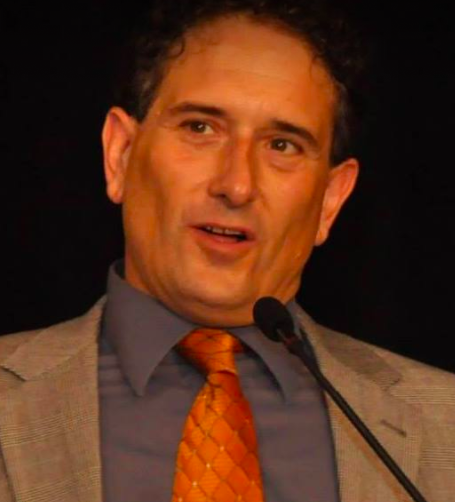Susan J. Demas
Just after Barack Obama’s election during the dawn of the Great Recession, his future chief of staff, Rahm Emanuel, caught some heat for this observation:
“You never want a serious crisis to go to waste. And what I mean by that is an opportunity to do things that you think you could not do before.”
Republicans like U.S. Sen. Rand Paul (R-Ky.) have claimed Emanuel was arguing for Democrats to exploit tough times to ram through their agenda. In reality, Politifact notes Emanuel “specifically urged addressing longstanding problems with ‘ideas from both parties’ when a crisis presents the opportunity.”
This controversy, like so many of the Obama era (remember the right-wing roil over his “Between Two Ferns” appearance?), seems downright quaint today. We routinely careen from one Trump administration firestorm to the next, from Trump’s lawyer claiming he paid porn star Stormy Daniels $130,000 for her silence on her alleged affair with the president to Trump taking a week to condemn domestic violence after allegations surfaced against two senior aides.
But here in Michigan, there just may be a lesson in Emanuel’s words. It’s tempting to feel some moral superiority about our politics compared to the gauche circus in Washington. However, we’re still grappling with a host of problems, as national headlines on the Flint water crisis and the Michigan State University Larry Nassar scandal can attest.
Both crises deserve a number of policy prescriptions to ensure they never happen again. Unfortunately, there are huge ideological barriers in dealing with the mass poisoning of a largely African-American city during the tenure of a GOP governor and a sexual abuse scandal that ESPN reports could ensnare a Big 10 university’s sacred football and basketball programs (an idea apparently so unfathomable that interim MSU President John Engler and several Michigan reporters have gone on the attack).
Hoping that our GOP-controlled state opts for stricter environmental regulations or mandates on sexual abuse reporting appears to be a pipe dream. That fact alone is a powerful testimony that Michigan needs some real change in this next election.
But there are a couple of common-sense legislative actions that should be able to net bipartisan support: Freedom of Information Act (FOIA) reform and a process for appointing independent special prosecutors.
One of the reasons why the Flint water crisis has dragged on much longer than it had to is people living there couldn’t get basic information about their water and serious health effects. Neither the governor’s office nor the Legislature is subject to FOIA in Michigan, making us one of only two states with such restrictions.
There have been a couple attempts to expand FOIA, but they’ve stalled. Senate Majority Leader Arlan Meekhof (R-West Olive) last year sneered to journalists: “You guys are the only people who care about this.”
I’m pretty sure that parents of kids with lead poisoning and the families of 12 people who died of Legionnaires’ disease would have appreciated access to more government information.
Now some of the legislation proposed isn’t perfect and would set up a Byzantine process for getting information from legislative offices. But FOIA reforms should be the lowest of low-hanging fruit and a top priority.
MSU’s handling of the Nassar scandal is now being investigated by former Kent County Prosecutor William Forsyth. Attorney General Bill Schuette, who’s running for governor, is directing the investigation, the Detroit Free Press uncovered (thanks to FOIA!), although he had claimed that Forsyth was an “independent special prosecutor.”
As the AG’s office charged Nassar with sexual assault crimes, this is an obvious conflict. Not to mention the fact that Schuette has strong ties to Engler, who appointed the AG to his cabinet while he was Michigan’s governor.
That’s led Lt. Gov. Brian Calley to propose legislation establishing a new class of independent special prosecutor in state law to avoid conflicts of interest.
Now Calley has a clear political interest here. He’s facing Schuette in the GOP gubernatorial primary this year. After watching Schuette snag endless headlines for prosecuting high-profile members of the Gov. Rick Snyder administration over Flint, Calley isn’t eager to see a replay so close to the August election.
Of course, in the Nassar investigation, it’s doubtful that the AG probe will target Calley’s colleagues again, as the focus should be on MSU administration. However, it’s easy to see how Schuette’s likely general election opponent, Gretchen Whitmer, could become a focus for her role as interim Ingham County prosecutor.
Calley argues that there are cases that deserve a truly independent prosecutor and he wants to give the courts that power. Alas, with Republicans running the Legislature divided in their loyalties between Calley and Schuette, this reform will probably get even less traction than FOIA legislation.
It seems that the Legislature is following the same dysfunctional pattern we’ve come to expect from the GOP-led Congress where gridlock isn’t just the byproduct divided government anymore.
Don’t be surprised if voters demand better this fall.
Susan J. Demas is Publisher and Editor of Inside Michigan Politics, a nationally acclaimed, biweekly political newsletter. Her political columns can be found at SusanJDemas.com. Follow her on Twitter here.







